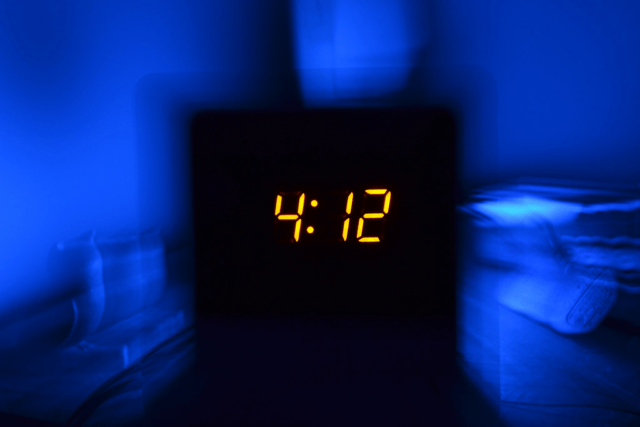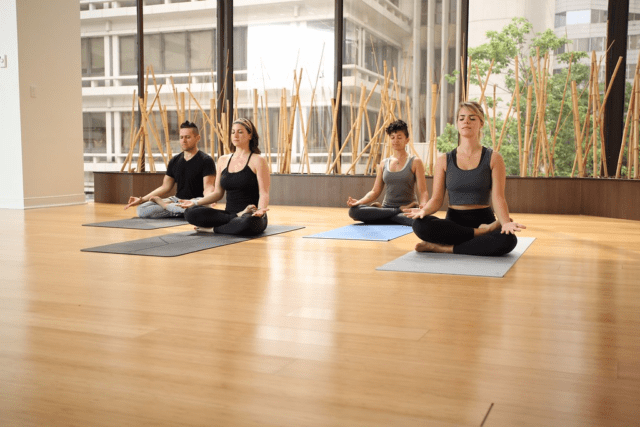Did you know that around a quarter of American adults experience insomnia? Most of us can cope with the odd sleepless night, but prolonged spells of sleep deprivation can take their toll on almost every aspect of your health and wellbeing. If you struggle to get to sleep, or you frequently find yourself lying awake in the small hours, here are some tips to put a stop to sleepless nights.
Revamp your routine
When we talk about sleep routines, we tend to think about children, but having a regime can also be hugely beneficial for adults. Your body has an internal clock, and your waking and sleeping patterns are governed by circadian rhythms. If you go to bed at 10 pm one night and 1 am the next, and this is a regular pattern for you, you might find it tricky to get to and stay asleep. Revamp your evening routine and set a bedtime. If you go to bed at the same time every night, you should notice that your sleep habits improve within weeks. It’s also a good idea to set your morning alarm for the same time each day and to give yourself time in the evenings to relax and chill out. If you’re rushing around, you’re checking emails, or you’re planning for a meeting just before you hit the hay, you’ll find it hard to switch off. Shut down tablets, avoid looking at emails, and do something that makes you feel relaxed. Watch TV, run a bath, call a friend, read a book, or put a soothing playlist on. If you get into the habit of following a routine, your body will adjust, and you should find it easier to relax and to ensure you get enough rest.

Image credit
Address obstacles
In most cases, insomnia is linked to underlying factors or obstacles that prevent good quality sleep. Often, anxiety and worry can play a part, but sometimes, there are issues that disrupt peace and quiet and impact the serenity of the environment. Examples include external noise and snoring. If you have noisy neighbors or you share a room with a snorer, this can prevent you from getting to sleep and you might wake during the night. The good news is that there are solutions to these issues. If your neighbors are causing problems on a regular basis, slip a polite note through the door and ask if they would mind being quieter after 11pm, for example. You could also have a chat with your neighbor, and you can wear earplugs in bed. If snoring is a problem, it’s wise to speak to your partner about ways to tackle nighttime noise. Changing your body position, avoiding alcohol in the evenings, and losing weight can all reduce the risk of snoring. If self-help techniques don’t work, it may be a good idea to arrange to see an ENT doctor. Snoring is not usually a major health issue, but it can put a strain on even the most secure and loving relationships. Seeking advice could help to restore peace and harmony.

Image from https://www.flickr.com/photos/schnappischnap/8969004201
Exercise
If you’re tired, and you can’t remember the last time you enjoyed 7 hours of sleep in a single night, exercise may be the last thing on your mind. You may not have the energy or the inclination to hit the gym or go for a run when you’re struggling to keep your eyes open in the middle of the afternoon, but physical activity is one of the best remedies for insomnia. Exercise tires the body out, improving sleep quality, and it also helps to reduce anxiety and stress, common causes of sleep troubles. Working out triggers a hormonal response, which makes you feel good, and it can also energize you. Aim to exercise in the morning or in the afternoon before 6pm. If you work out late in the day, this can increase alertness and boost energy levels, which you don’t want before you go to bed. If you don’t have time to work out, and you want to get some exercise in before the day ends, choose an activity that will help to relax you, for example, swimming or yoga.
Picture source: https://www.flickr.com/photos/wetravelto/35169895993

Sleepless nights can leave us feeling exhausted, lethargic, and grumpy. If you struggle to get 7 hours of sleep a night on a regular basis and a lack of sleep is taking its toll, take these tips on board. Get yourself into an evening routine, address any problems that are keeping you awake, and try and exercise a few times a week.



